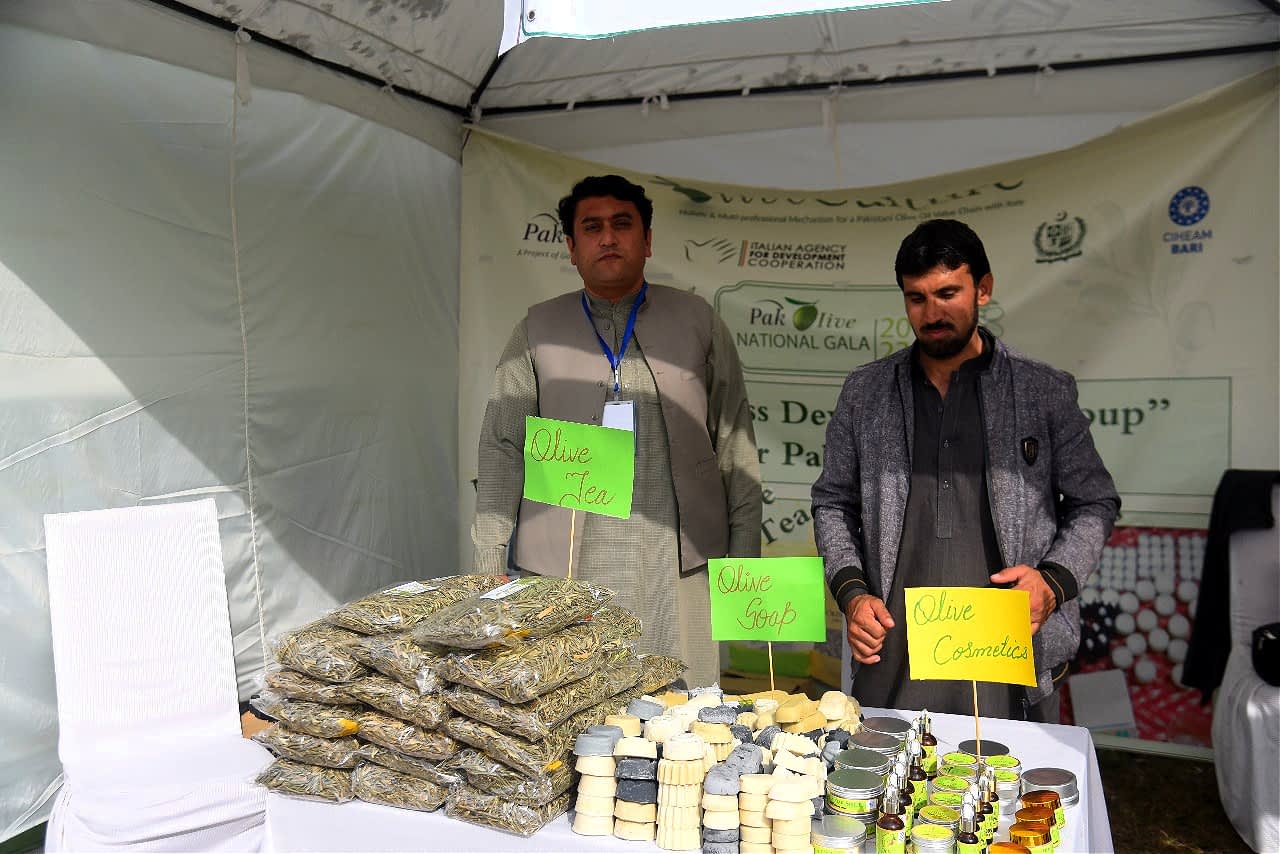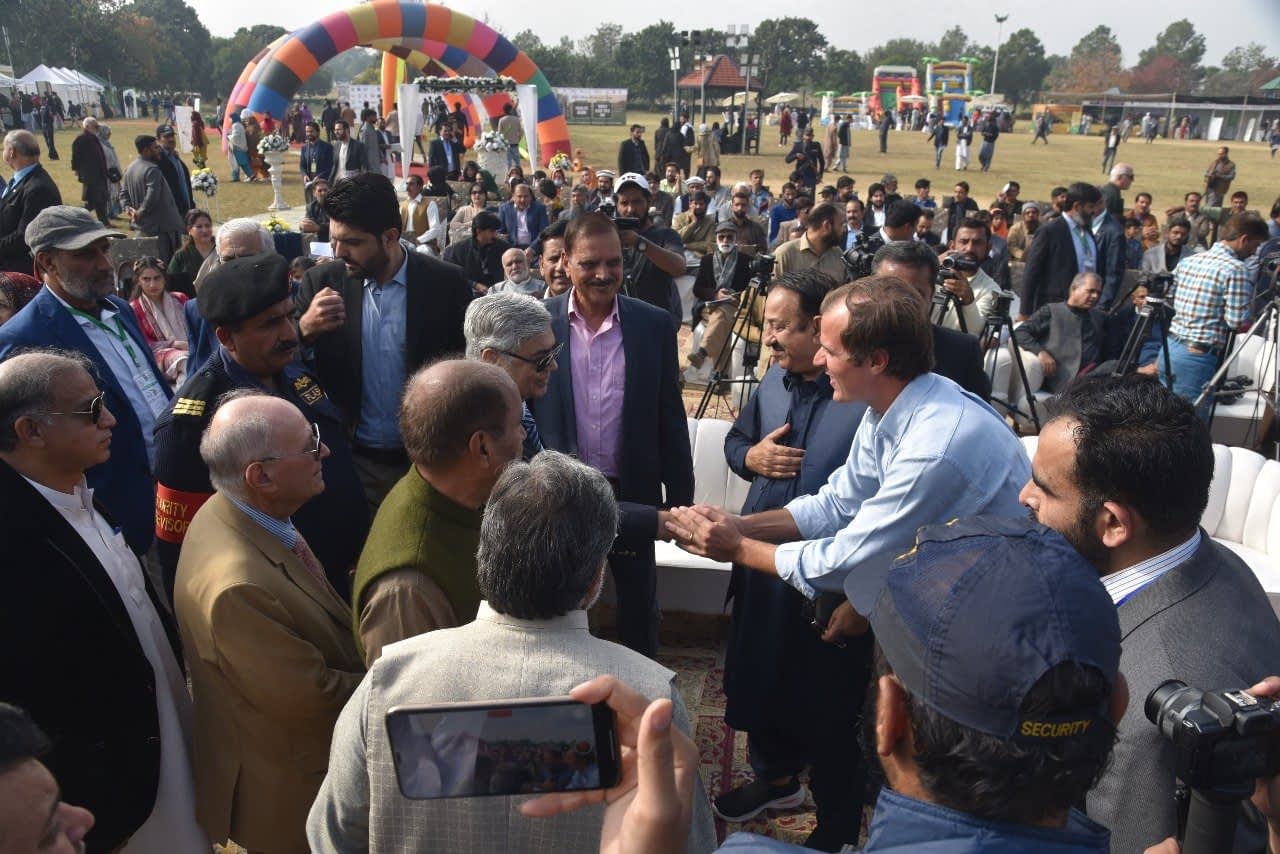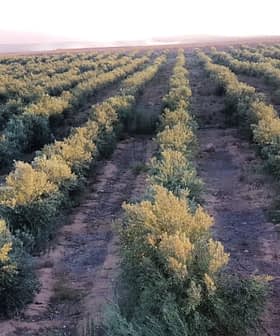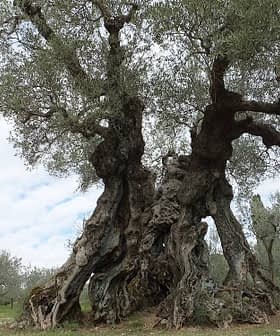Supporters of Pakistan’s fledgling olive oil industry recently gathered to celebrate World Olive Day at the PakOlive National Gala in Islamabad.
“The olive gala was a great success as per the response we got from the stakeholders,” said Azmat Ali, the national project director of PakOlive, which organized the event. “These types of events help in the promotion of olive culture in Pakistan.”
The gala was hosted as part of the country’s initiative to promote commercial-scale olive cultivation and create a value chain surrounding olive farming and oil production.
See Also:Olives Bring Sustainable Development to PakistanThe event brought together olive oil enthusiasts, curious consumers, students, industry experts, government officials and foreign dignitaries to network and seek partnerships with domestic and international entities.
“This event served as a crucial stepping stone for Pakistan’s olive and olive oil industry,” said Aiza Imran, the senior brand executive and climate sustainability specialist at Khaity Technologies, an agri-tech firm.
“Featuring over 60 exhibitors, each showcasing uniquely curated products, the gala provided valuable insights into the multifaceted aspects of the sector,” she added.
Khaity Technologies was among the exhibitors, allowing landowners and farmers to use the firm’s remote sensing technologies to explore how their land could be used for olive cultivation.
The agri-tech company has been instrumental in developing Pakistan’s olive growing and oil production sector, advising farmers about growing, harvesting and transforming olives.

Government officials, students and curious consumers attended the event to learn more about Pakistan’s fledgling olive oil sector. (Photo:PakOlive)
The company also offers soil analysis, disease detection services and an online marketplace for farmers to purchase agricultural products.
Shahid Saeed Abbasi, the chief executive of Bagh e Zaitoon, a farmers’ association, was also among the attendees.
“Galas of this type increase the awareness of local products, and we had a good experience in sales and introduction of local produce,” he said. “The event was successful, and frequent events of this kind in major cities will help to generate a bigger market for local olive products.”
Bagh e Zaitoon includes a large network of farmers, including olive farmers, spread across Pakistan. Abbasi said he was at the event to promote the country’s olive oil to interested consumers and provide networking opportunities for olive farmers and millers.
Other farmer associations, independent olive oil producers and nurseries were also among the 60 exhibitors at the two-day event.

Vendors attended the event, selling their olive oil and olive-derived products. (Photo:PakOlive)
“With thousands of attendees over the two-day exhibition, nationwide [media] coverage and the presence of government officials, the PakOlive National Gala proved to be a success for both organizers and exhibitors,” Imran said. “It played a pivotal role in raising awareness about the growth of Pakistan’s local industry.”
The gala also served as a platform for officials to promote several foreign-funded projects, including an investment by Italian companies to develop the olive oil production chain.
Officials said the project brought expertise, technology, and resources, helped improve diplomatic ties, and promoted cultural exchange between the two countries.
“The project has helped to promote olive culture in Pakistan through several activities,” Ali said. “In the future, this project will help in the development of labs, olive cultivation capacity and more advanced infrastructure.”

A guided extra virgin olive oil tasting at the Pak Olive National Gala (Photo: PakOlive)
Pakistan’s olive industry is still in its very early stages. Therefore, there is an immediate need to train the workforce to meet quality standards.
“Our experience has been good, and growth has been getting better however, the olive industry is still in the infant stage,” Abbasi said. “In 2015, we started to convert the harvest into oil and tabled olive products. Since then, we are expanding our marketing of local produce every year organically.”
According to a 2022 report on the country’s olive oil sector from the Pakistan Business Council, per capita consumption is just 0.017 kilograms per annum.
“Despite the minimal existing domestic consumption of olive oil, it is encouraging to see that
demand for olive oil in Pakistan over the last decade has more than doubled from 1,461 tons to 3,744 tons over a period of ten years from 2011 to 2020,” the council wrote.

Officials from Italy were among those attending the PakOlive National Gala to promote their projects. (Photo:PakOlive)
The Pakistan Business Council attributed this increase in production to increasing awareness about olive oil health benefits in Pakistan and the wider penetration of international cuisine that uses olive oil as a key ingredient in the country.
However, the report also said that olive oil consumption was unlikely to meaningfully replace the country’s most commonly used cooking oils in the foreseeable future.
Still, the involvement of foreign projects is helping to grow a local olive culture and has facilitated the transformation of the local workforce, equipping them with the necessary expertise and proficiency in line with recognized global standards governing olive cultivation and production.
“Foreign projects like PakOlive and OliveCulture, in collaboration with CIHEAM BARI and the government of Italy, include training programs for local farmers, agronomists and industry professionals,” Imran said.
“This is helping in building the skills and capabilities of the workforce involved in the olive industry of Pakistan,” she added.
Ali underscored the importance of holding such events in the future, adding that the national gala would become an annual event and other similar activities would be organized in the coming year.








